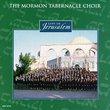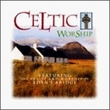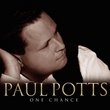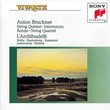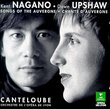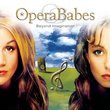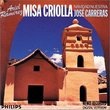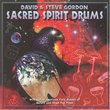| All Artists: Hector Berlioz, Georges Bizet, Edward Elgar, Carl Orff, Giacomo Puccini, Camille Saint-Saens, Milton Stevens, Martin Hackleman, Charles Casey Title: Voices of Brass - Orff: Carmina Burana Members Wishing: 0 Total Copies: 0 Label: MSR Classics Original Release Date: 1/1/2006 Re-Release Date: 2/14/2006 Genre: Classical Styles: Opera & Classical Vocal, Symphonies Number of Discs: 1 SwapaCD Credits: 1 UPC: 681585115923 |
Search - Hector Berlioz, Georges Bizet, Edward Elgar :: Voices of Brass - Orff: Carmina Burana
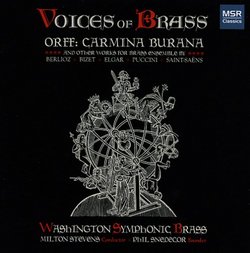 | Hector Berlioz, Georges Bizet, Edward Elgar Voices of Brass - Orff: Carmina Burana Genre: Classical
The inspiration for this recording is the wonderful, varied world of vocal music, coupled with a few orchestral sonic spectaculars. Associations between brass instruments and singing are certainly not novel ideas. While t... more » |
Larger Image |
CD Details
Synopsis
Product Description
The inspiration for this recording is the wonderful, varied world of vocal music, coupled with a few orchestral sonic spectaculars. Associations between brass instruments and singing are certainly not novel ideas. While the first sounds that could be called music must have been melodious sounds from vocal cords (perhaps simultaneously with rhythmic drumming), attempts to mimic the voice by the use of crude wind and string instruments would certainly have been the next explorations into sound production. Whether primitive man coaxed tones from the discarded horn of a ram or the broken end of a conch shell, he was vibrating his lips using the same technique employed by brass players today. For centuries, teachers of brass have exhorted their students to ?sing? on their instruments. Indeed, our method of sound production is strikingly similar to that of singers. We all use air in motion (wind), which passes through tautly shaped membranes to produce musical tones. Additionally, brass instruments lend a special ?voice? to any musical texture. We find our that our voice is featured very prominently and effectively in the original orchestrations of works such as Orff?s Carmina Burana, the Berlioz Marche au Supplice, the Nimrod movement of the Enigma Variations by Elgar, and the Saint-Saëns Organ Symphony. Inclusion of those works on this recording is a natural. Carmina Burana by Carl Orff is an ideal vehicle to show off the prowess of the Washington Symphonic Brass. Orff?s writing is solidly rhythmic with beautifully shaped, but simple melodic curves. Whereas Orff treats the vocal parts in repetitive, chant-like phrases, much like instrumental lines, Phil Snedecor?s excellent transcription transfers all of the famous solos and chorus parts to the talented instrumentalists of the WSB. Extending the concept of transcribing music originally from vocal literature, Phil Snedecor arranged two famous arias from Puccini operas plus two well-loved selections from Bizet?s Carmen, each featuring a different member of the WSB as soloist. We have also included three powerful, purely instrumental symphonic movements on this ?Voices of Brass? recording. This allows us to explore the grave sounds of the Marche au Supplice from Symphonie Fantastique by Berlioz, the sublime Nimrod section from the Enigma Variations by Elgar, and the mighty Finale from Symphony No.3 (the Organ Symphony) by Saint-Saëns. In so doing, we have added another voice to the texture by utilizing the splendid Aeolian-Skinner organ at National Presbyterian Church in Washington, D.C. The organ, dedicated in 1970, is Opus 146 of the Company and consists of more than 6000 individual pipes in 106 ranks and seven divisions, with a console of four manual keyboards and one pedal keyboard.
Similarly Requested CDs
| Paul Potts One Chance Genres: Special Interest, Classical Label: Sony | |
| Opera Babes Beyond Imagination Genres: Pop, Soundtracks, Classical, Broadway & Vocalists Label: Sony | |

 Track Listings (22) - Disc #1
Track Listings (22) - Disc #1